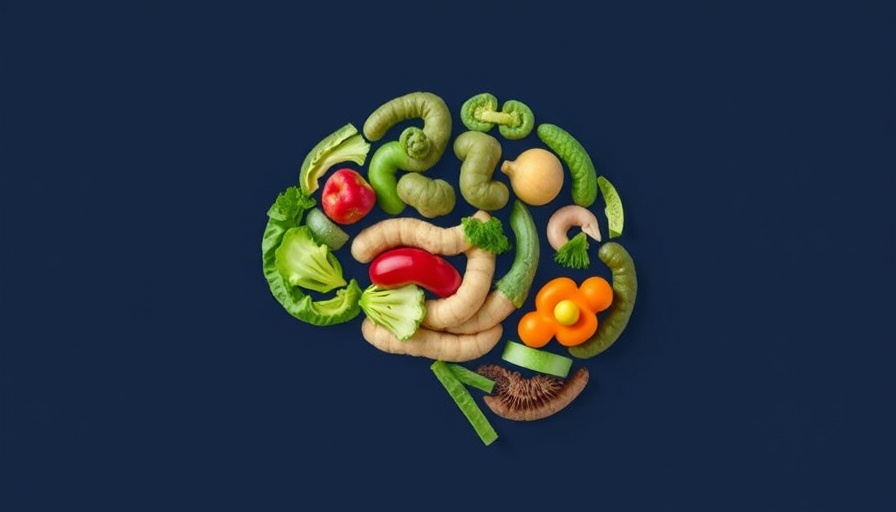
The Gut-Brain Connection Explained
The intricate dialogue between our digestive system and brain exemplifies one of the most fascinating aspects of human biology. As we delve into this complex relationship, we uncover a remarkable connection that touches both science and spirituality. This article will break down how whole, plant-based foods—aligned with the principles found in Genesis—serve pivotal roles in supporting mental wellness. This connection between nutrition and emotional health offers insights grounded in scientific evidence and reflection on our Creator's design.
Unpacking The Second Brain: The Enteric Nervous System
Your gut isn't just a digesting tank; it’s a powerhouse of neuron communication, often referred to as your "second brain." The enteric nervous system houses around 500 million neurons. These neurons are responsible for producing an impressive 90% of the body's serotonin and 50% of its dopamine, two neurotransmitters crucial for mood regulation and mental well-being. This vast neural network engages with the central nervous system through the vagus nerve, a channel that facilitates rapid signaling critical to our body’s responses.
Recent scientific findings from fMRI studies have shed light on the benefits associated with a plant-based diet rich in polyphenols, such as those found in berries and dark greens. Such diets have been shown to boost vagal tone by 32%, enhancing the gut's regulation of stress responses. In an experiment where volunteers adopted a whole-food regimen for six weeks, brain scans revealed marked activity increases in emotional regulation areas, highlighting our body’s remarkable healing capacity when supplied with the right nutrients.
The Role of Gut Microbiota: Your Brain's Chemists
Our gut microbiota—a diverse ecosystem of bacteria, fungi, and viruses—functions as our body's "chefs," producing over 200 neuroactive compounds essential for brain health. Among these, three types of compounds stand out:
- Short-chain fatty acids (SCFAs): Found in fiber-rich foods like beans and whole grains, butyrate—a type of SCFA—has shown promise in strengthening the blood-brain barrier and reducing neuroinflammation by up to 41% in studies related to Alzheimer's disease.
- Tryptophan metabolites: This essential amino acid is abundant in foods like pumpkin seeds and spirulina. Research from 2025 indicated that pairing tryptophan with prebiotic fibers may result in a 27% reduction in insomnia severity, amplifying its beneficial effect on mood.
- GABA precursors: Fermented foods such as kimchi and sprouted lentils can enhance the production of gamma-aminobutyric acid (GABA), a neurotransmitter crucial for calming the brain. Clinical trials noted that GABA-rich diets can lower cortisol levels by 19%, providing effective stress relief.
The Impact of Plant Variety on Microbiota
A landmark study in 2024 revealed that individuals consuming more than 30 different plant varieties each week foster microbial ecosystems 58% more efficient at producing beneficial compounds. This finding underscores the correlation between diet diversity and gut health, which is intricate to mental wellness. By diversifying their diet, individuals can not only enhance their microbiome but also pave the way for improved brain functionality.
Embracing Holistic Mental Wellness Through Nutrition
Understanding the relationship between our gut health and mental well-being can inform daily choices in nutrition. Embracing a diet rich in whole, plant-based foods fosters both physical health and emotional stability. Whether through smoothies packed with leafy greens, fiber-rich whole grains, or probiotic-rich fermented foods, there are many opportunities to align our eating habits with embracing holistic health.
Takeaways for Better Mental Health
This exploration into the gut-brain connection provides actionable insights into how we can utilize nutrition to enhance mental wellness. Adopting a whole foods-based diet not only honors our biological design but also promotes better emotional balance. As we set our paths towards healthier choices, let us reflect on how these eating habits can influence not just our bodies, but our minds as well.
 Add Row
Add Row  Add
Add 




 Add Row
Add Row  Add
Add 


Write A Comment